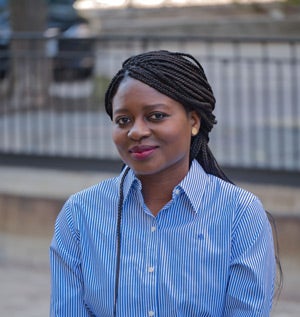Ketty Anyeko is undertaking her research with the support of U of T’s Postdoctoral Fellowship Program
Ketty Anyeko experienced first-hand the turmoil of the war in northern Uganda between the government and Lord’s Resistance Army rebels – and is now dedicating her scholarly efforts to supporting post-conflict resolution and pursuing justice for victims.
A postdoctoral researcher at the University of Toronto's Centre for Criminology and Sociolegal Studies, Anyeko is examining how children born of wartime sexual violence view the legal prosecutions of their fathers – often former rebel commanders – for sexual- and gender-based crimes.
These children, now in their late teens and early 20s, often face stigma and blame for the conflict.
“They're rejected, they struggle to make ends meet,” says Anyeko, who was born and raised in northern Uganda and adds that she feels a personal connection to her research work.
“I want to contribute knowledge about this specific category of victims who are often overlooked when it comes to post-conflict justice and reparation programs.”
Anyeko’s research is supported by U of T’s Provost’s Postdoctoral Fellowship program, which provides funding to hire postdoctoral researchers from underrepresented groups – specifically Black and Indigenous researchers. The program – introduced in 2018 – helps researchers grow their scholarly profiles, undertake critical academic work and strengthen the research environment at the university by bringing diverse perspectives.
Every year, seven Black or Indigenous researchers are selected for the two-year fellowship.
Cheryl Regehr, U of T’s vice-president and provost, says the program helps U of T attract top researchers and scholars across a wide range of fields.
“This program is one of the many ways in which the University of Toronto is supporting underrepresented researchers – in particular, Black and Indigenous researchers – across the three campuses so that they can grow their careers and focus on their important work,” Regehr says. “It also underscores the university’s longstanding recognition that diversity and representation are core elements of world-class scholarship, research and teaching.”
In Anyeko’s case, she began her fellowship at U of T in January 2023 under the guidance of supervisor Kamari Clarke, a distinguished professor of transnational justice and sociolegal studies in the Faculty of Arts & Science.
Having previously researched the experiences of women who survived wartime sexual violence and forced marriages, Anyeko is now turning her attention to the children born out of forced pregnancies. That includes a focus on the role of former rebel commander Dominic Ongwen, who, in 2021, was found guilty by the International Criminal Court of 61 counts of war crimes and crimes against humanity that were committed in northern Uganda between 2002 and 2005.
Anyeko says her work has helped her forge a bond with women in her hometown.
“They trust me. They call me their sister,” she says. “In some of the storytelling sessions, they tell me things they have never told anyone.
“It’s a privilege to have that trust within the community.”
To date, a total of 36 researchers have been admitted to the Provost’s Postdoctoral Fellowship program – more than 80 per cent of whom had not previously held a postdoctoral research position.
Many have gone on to work in faculty positions at U of T and at institutions across North America.

They include Nadège Compaoré, who is now an assistant professor in the political science department at U of T Mississauga. A provost’s postdoctoral fellow in 2019, Compaoré’s work focuses on international relations, African politics, global resource and environmental politics, as well as gender and race in global politics.
She says the fellowship provided her with an opportunity to strengthen her research portfolio, receive mentorship and develop an academic network in Canada and beyond. She also had the opportunity to travel and present her work at various conferences in North America, Africa and Europe.
“When I talk about the time and resources offered through the fellowship, I don’t just mean the time actually spent diving into various scholarship, reading and writing – which is key of course,” she says. “But I also mean the time and funding to really test out important aspects of my work and bounce ideas off folks that I wouldn’t necessarily have come across otherwise.”
Compaoré says the program helped her frame her first book project – which focuses on natural resources and African sovereignty claims – and has given her the freedom to develop a second major research project on the links between pan-Africanism, Black female internationalism and American foreign policy.
“I am thankful for the people, spaces, networks and opportunities that have nurtured my time as a fellow, and which continue to be part of my growth as an academic.”
Joshua Barker, vice-provost, graduate research and education and dean of the School of Graduate Studies, says the contributions made by current and former Provost’s Postdoctoral Fellowship researchers, including Compaoré, are invaluable.
“We are dedicated to the ongoing success and expansion of the Provost’s Postdoctoral Fellowship program, which has contributed to a more inclusive and innovative research environment at the university,” he says.
As for Anyeko, she plans to collaborate with two-community based organizations to organise consultative workshops with northern Ugandan children who were born of sexual violence during the war – ultimately translating her research into policy recommendations for the programs and initiatives meant to support them.
This story by Mariam Matti was originally published by U of T News, October 31, 2023.


